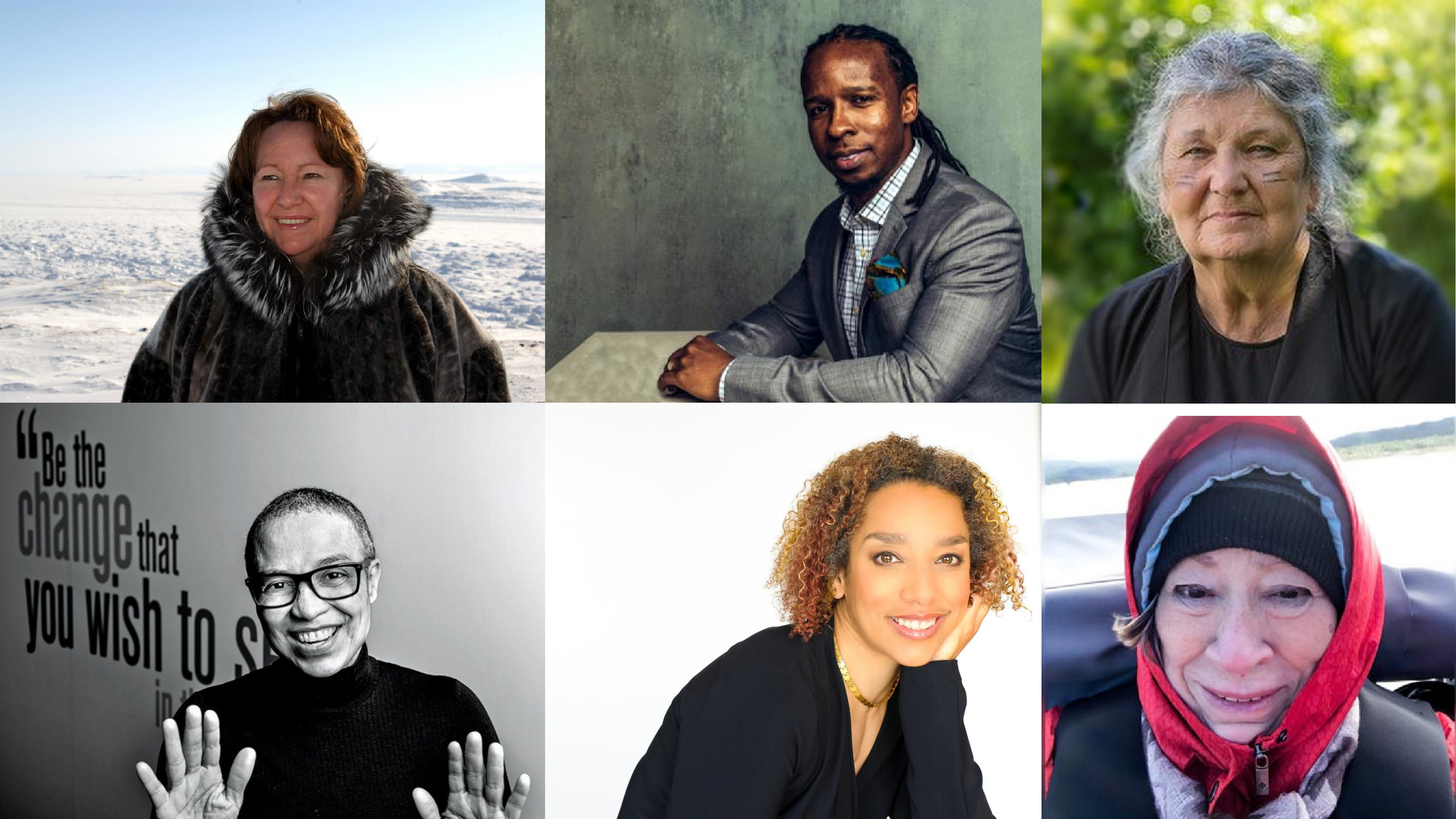Congress 2021 is officially underway. This morning we hosted our opening ceremony alongside our partner institutions Yukon University and the Federation for the Humanities and Social Sciences, and had an opportunity to hear teachings from First Nations, Métis, and Inuit knowledge holders. In case you missed it, the opening ceremony is available on-demand on the Congress platform, so that all of our guests can receive a respectful welcome to Treaty Six Territory and the Métis Nation Homeland.
And with that, Congress 2021 has arrived. The highlights include, of course, the Big Thinking lineup of six outstanding public intellectuals who are anchoring our conversations around decolonization, combatting anti-Black racism, and the Congress theme of Northern Relations.
You can get all of the details right here, but let me give you a little preview. First thing to know: all of the Big Thinking events happen at noon Mountain Time (with one exception), and will run from Friday, May 28th to Thursday, June 3rd.
And what a lineup! The Big Thinking speakers include University of Alberta alum the Honorable Ethel Blondin-Andrew, a long-standing Dene leader and the first Indigenous woman elected to Parliament; the U of A’s Canada Research Chair in Feminism and Intersectionality, Shirley Anne Tate; best-selling author and dynamic public intellectual Ibram X. Kendi; performance artist and a leader in the intersectional disability arts movement Alice Sheppard; celebrated Métis Writer, playwright, filmmaker, and teacher Maria Campbell; and Inuit activist Sheila Watt-Cloutier, a leading environmental, cultural, and human rights advocate who is also the recipient of a 2009 U of A Honorary Doctorate.
And the range of vital subjects is impressive. Blondin-Andrew will be talking about how clean water, good jobs, and active participation in diverse local economies through Indigenous-led conservation are pathways to healthy futures for land and for people. Tate’s talk has been organized by the U of A’s Black Graduate Students’ Association. Titled “Racism’s touch: ‘I can’t quite put my finger on it,’” the lecture will take a critical look at racism in the academy. And Kendi will take part in a dialogue with U of A professor Andy Knight on the subject of “How To Be An Antiracist.”
Sheppard will explore the ways in which the intersectional disability arts movement promotes work by people with disabilities—work that features people with disabilities, and work that imagines people with disabilities as its primary audience. In her talk, titled “Ni'wahkomakanak: All My Relations,” Campbell will tell the story of how colonial practices have disrupted relations within Indigenous families and communities. And Watt-Cloutier will present a new model for 21st century leadership by approaching urgent issues such as the environment, the economy, foreign policy, global health, and sustainability not as separate concerns, but as a deeply interconnected whole.
This is an important opportunity to redirect conversations in a way that can lead to substantive change. And, these are just a handful of the 1600 distinct events that will take place at Congress 2021. I can’t wait to take it all in, and to be a part of an historic virtual gathering of scholars from across Canada and around the world.
I hope you’ll join us.
Community passes for Congress 2021 are available here, and are free to anyone who self-identifies as Indigenous or Black.
